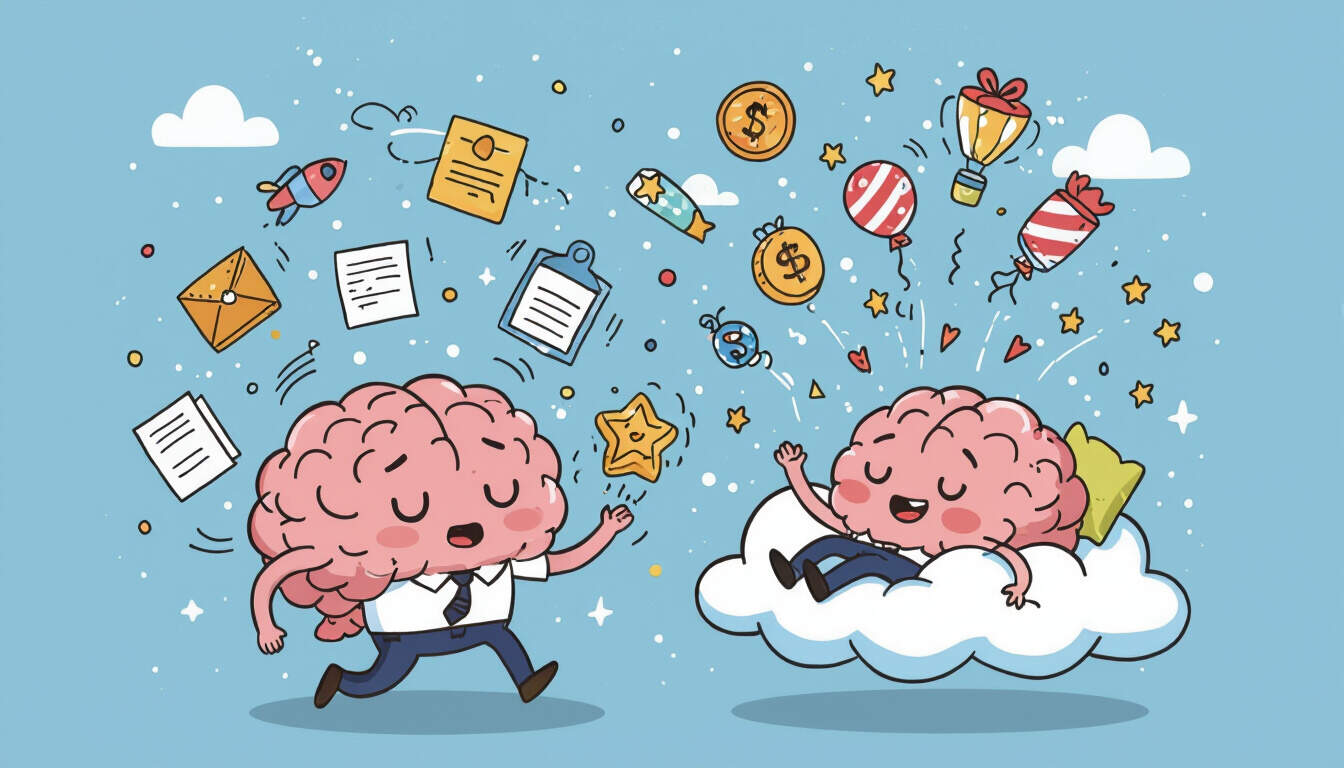Rewards Systems for Reducing Cognitive Load and Enhancing Motivation
 by Shanie Goodwin
by Shanie Goodwin
Explore practical ways to use rewards systems to ease mental overload and build motivation. This approach helps students and professionals manage tasks more effectively, leading to better focus and productivity in daily life.

In our busy lives, managing mental demands can often feel overwhelming. Rewards systems offer a simple yet effective way to lighten this burden. By introducing incentives, individuals can break down tasks and make progress feel more achievable.
Why Rewards Systems Matter for Mental Relief
One key benefit of rewards systems is their ability to reduce the strain on our mental resources. When people set up clear incentives for completing tasks, they create a structure that supports focus. For example, a student might promise themselves a short walk after finishing a study session. This method helps in distributing effort more evenly, allowing for better recovery.
Rewards systems work by encouraging positive habits. motivation plays a crucial role here, as it turns routine activities into something more engaging. Professionals dealing with heavy workloads can apply this by linking small achievements to enjoyable breaks. The idea is to make daily challenges less taxing by adding elements of anticipation.
Practical Tips for Everyday Use
To start, begin with small, manageable goals. Set a specific reward for each completed task, such as reading a chapter of a book. This approach ensures that the process remains sustainable and helps in avoiding burnout.
For students, incorporating rewards into study routines can make a big difference. They might use a system where finishing assignments earns them time for hobbies. rewards systems like this foster a sense of accomplishment and keep energy levels steady.
Professionals can adapt these ideas to work settings. For instance, after completing a report, one could treat themselves to a favorite coffee. By doing so, they maintain productivity without overwhelming their mental capacity.
Another tip is to track progress visually. Using a simple checklist with marked rewards can provide clear feedback. This visual aid reduces the need to hold details in mind, freeing up space for other thoughts.
Implementing Rewards in Different Scenarios
Consider the needs of various groups. For students facing exams, rewards could involve fun activities after intense study periods. This not only boosts motivation but also aids in retaining information by associating learning with positive experiences.
In professional environments, teams might set group rewards for project milestones. This shared approach lightens individual load and promotes collaboration. The key is to choose rewards that align with personal interests, making them more effective.
Parents can also use rewards systems for family routines. For example, completing chores might lead to family game night. Such strategies help everyone involved manage daily pressures with less mental effort.
Overcoming Common Challenges
Sometimes, maintaining a rewards system can slip. To counter this, start with realistic expectations and adjust as needed. If a reward feels unappealing, switch it out for something more desirable. This flexibility keeps the system fresh and effective.
It's also important to balance rewards with actual progress. Over-reliance might reduce intrinsic drive, so aim for a mix that includes both external incentives and internal satisfaction.
Long-Term Benefits
Over time, using rewards systems can lead to lasting changes. Individuals often find they need less mental effort for tasks that once felt draining. This shift allows for greater creativity and problem-solving in other areas.
For those interested in cognitive science, these methods align with ways to optimize brain function. By reducing overload, people can achieve more with less stress, leading to improved well-being.
In summary, rewards systems provide a straightforward path to easing mental demands. Whether for students or professionals, these strategies offer practical tools for a more balanced life. Give them a try to see the difference in your daily routine.
Additional Strategies for Enhancement
To build on this, combine rewards with brief reflections. After receiving a reward, take a moment to note what worked well. This practice reinforces positive patterns without adding extra burden.
For variety, experiment with different types of rewards. Some might prefer social activities, while others opt for quiet time. The goal is to find what best suits individual preferences, ensuring long-term success.
Ultimately, these systems empower people to handle life's demands with ease. By focusing on achievable steps and meaningful incentives, anyone can reduce mental overload and enhance their overall experience.
